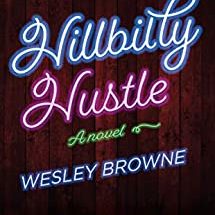I never went to summer camp.
I always wondered what it was like, that thing that other kids in other places got to do. My mom couldn’t afford it. Instead, my brother and I spent our summers trying to stay out of my mother’s way so she wouldn’t give us extra work to do. You’re bored? Why don’t you do some laundry? I spent a lot of time hiding from those chores by reading at the library. The free books there were my counselors, teaching me life lessons, taking me away from the limited world of my old-school Brooklyn neighborhood, and showing me other possible versions of life.
Those summers spent hiding out with books were my gateway drug to becoming a writer. You know how it goes. First you’re reading novels, then writing a diary, then a few stories and before you know it you’re planning your novel. But my working class background got in the way of me believing I could actually be a serious writer. I did a lot of other things instead, including getting married and having kids. It took me a long time to get back to fiction, but here I am all these years later revising my first novel.
To help with this revision, I applied for the Tin House Summer Workshop held at Reed College in Portland, Oregon, and (miracle!) I got accepted. Before I left a friend joked that it was going to be writer’s sleepaway camp. I laughed, but I didn’t really know what that meant. Even though I’ve sent my kids to camp, I still didn’t know what happens there that makes everyone seem so attached to their camp experiences.
I packed myself up and got on a plane for a week — the longest I’ve ever been away from my husband and kids. Once I got to Reed College I was given a key to a dorm room—a tiny box with a narrow bed, a desk, and a dresser. After I made my bed and put my books on the shelf, I sat down and realized how unattached I was for the first time in a long time. In my regular life, I spend most of my time taking care of others—paying bills, preparing meals, driving teens to appointments and classes, but at that moment in that tiny room, I didn’t have to do anything for anyone. It was just me, on my own. I felt a little dizzy.
Later that day I walked into the opening session and was overwhelmed by what I had gotten myself into. A whole auditorium full of real writers. I sat down and wondered if I would ever feel like I belonged there, like I was one of the writers and not some mom playing dress-up.
Everyone looked like they knew each other already. I hadn’t felt this awkward since the first day of high school.
It all got a little easier when I went to my workshop meeting. The workshop was led by Alex Chee, a writer I’ve admired for years and a teacher who brings the most calm and centered energy to the classroom. I felt like I already knew the writers in my class since I’d read sections of their novels. Now I could put faces to the words on the page. As we went around the room and introduced ourselves, I was struck by how incredibly diverse the writers in our group were—all different ages, ethnicities, sexualities, income levels, living in all different parts of the country and world, with different day jobs and educational backgrounds, as well as widely different writing styles. It was a great group, smart and generous, and we bonded almost immediately.
I don’t think I’ve ever been in a writing class with such a wide range of perspectives. For the past few years, as I got back into writing fiction after a long time away from it, I have been taking classes around Boston. Most of the people in those classes have been like me— straight, middle- class, white women, 35-55. I’ve gotten a lot out of those classes, but it was revelatory to engage in the workshop process with so many different kinds of writers.
That diversity extended into the rest of the Tin House experience. Untethered from my real life, I connected with all different kinds of people—young and old, black and white, gay and straight, parents and non-parents. We talked about writing and reading, but we also talked about politics and race, class and gender, and the challenges of doing art seriously. I had long conversations with young gay men about coming out and the complicated process of acceptance, both of which are central to the novel I’m writing. I also laughed with people, drank rosé, sang karaoke, and danced.
Over the course of the week with Tin House, I went to magical readings and craft talks by writers whose work I love, but the absolute best part of the experience was the time spent expanding my worldview through conversations with other writers. Trying to see life through someone else’s eyes may be the essential effort of fiction, but in real life, it is so hard to break out of our demographic cubbyholes and connect with people who are different from us.
With all these new people far away from my life at home, I got to explore different perspectives and other ways to understand the world, but I also got to connect with parts of myself that I don’t get to use on a daily basis.
Maybe that is what summer camp is like.


3 comments